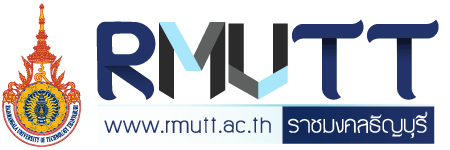Master of Education Program in Curriculum Development and Instructional Innovation) (M.Ed.)
Faculty of Technical Education

Overview
The goal of this curriculum is to produce master graduates to be leaders in curriculum development and teaching innovation in schools at all levels with morality and ethics, professional ethics. And all graduates can be accepted at the national and international levelObjectives
To produce a Master Degree graduates in “Curriculum Development and Instructional Innovation” to have the following knowledge, competencies, skills and experience as following:
- Research ability in curriculum and the ability to design curriculum development and teaching innovation in accordance with the knowledge and characteristics of learners. By apply the principles and theories to the development appropriately and can be accepted at national and international level.
- The ability to apply innovation and information technology to manage and develop of academic work related to curriculum development and instructional innovation.
- The research capability in order to develop knowledge to be applied to instruction or related work.
- Knowledge, educational ability and specialized fields. By focusing on the application of theoretical concepts of the curriculum and instruction to analyze, synthesize, apply, solve problems and develop education at both local and national levels with efficiency.
- Have educational leadership, morality, ethics and professional conduct in accordance with educational professional standards
This program encourages students to graduate according to the study plan (2 years) with national and international experience and knowledge as shown in the picture
Duration of Course 2 years
Language of Instruction: Thai ( but international students can use English when study)
Entry requirements:
- 1) Being a bachelor's degree in education. If graduating in other fields, applicants can be considered to study in this program from the opinion of the curriculum committee.
- 2) Being teachers or have research experience in curriculum or teaching will be considered a special case.
- 1. Graduated Bachelor's Degree in Education ( B.Ed)
- 2. If not graduated B.Ed . student must register for subjects in Foundation of Education.
Program Structure
- Number of credits as total no less than 36 credits
- Course structure shows the study plan is divided into 2 types as follows
| Subject group | program | ||
| program 1 | program 2 | ||
| 1. Core course subject group | - | 6 | Credit |
| 2. Specifically course subject group | - | 18 | Credit |
| 2.1 core specifically subject | - | 12 | Credit |
| 2.2 elective subject | - | 6 | Credit |
| 3. Thesis | 36 | 12 | Credit |
| Total of Credit | 36 | 36 | Credit |
Course Content
Basic knowledge adjustment subject group 3 unit
| 02-211-602 | Foundations of Education | 3(3-0-6) |
(1) Core course subject group
Program 2 Core course subject 6 unit
| 02-132-602 | Educational Research Methodology | 3(2-2-5) |
| 02-142-601 | Learning Management and Classroom Management | 3(2-2-5) |
(2) Specifically course subject group
Program 2 Specifically course 18 unit
2.2.2 Instructional Innovation Group. By choosing to study from the following courses:
(2.1) Core specifically subject 12 unit
| 02-141-603 | Curriculum Theories and Curriculum Innovation Development | 3(2-2-5) |
| 02-142-602 | Science and Art of Instructional Innovation | 3(3-0-6) |
| 02-141-704 | Seminar in Curriculum Development and Instructional Innovation | 3(2-2-5) |
| 02-142-603 | Instructional Innovation Design | 3(2-2-5) |
(2.2) Elective subject 6 unit
2.2.1 Curriculum Innovation Group. By choosing to study from the following courses:| 02-141-706 | Development of Innovation in School Curriculum and Training Curriculum | 3(2-2-5) |
| 02-141-707 | Practice in Curriculum and Instructional Innovation Development | 3(2-2-5) |
| 02-142-702 | Modern Instructional Innovation | 3(2-2-5) |
| 02-132-606 | The Innovation of Life Long Learning Management for Sustainability | 3(2-2-5) |
| 02-142-703 | Learning Management Innovation for Professional Learning Community | 3(2-2-5) |
| 02-143-701 | Text and Academic Papers Development | 3(2-2-5) |
(3) Thesis
| 02-223-603 | Thesis ( for program 1 – By research program , no have course study ) | 36(0-0-108) |
| 02-223-602 | Thesis (for program 2 – Coursework + Thesis program) | 12(0-0-36) |
Course Description
Course Description
| 02-211-602 | Foundations of Education | 3(3-0-6) |
| Educational philosophy and principles of education, educational psychology, curriculum and instruction, technology, measurement and evaluation to integrated in educational management | ||
| 02-132-602 | Educational Research Methodology | 3(2-2-5) |
| Types of educational research, problems analysis to determine the research topic, population and sample, research design, building and determine the quality of research instruments, data collection, the statistics used in this study, data analysis and summary of discussion and preparation of research reports | ||
| 02-142-601 | Learning Management and Classroom Management | 3(2-2-5) |
| Principles concepts, guidelines on drawing up the learning management plans; learning management and environment for learning; theories and learning management models for development of the learners’ analytical thinking, creative thinking and problems solving skills; inclusive learning integration; classroom management; learning center development; practice on drawing up the learning management plans and leading management atmosphere for learning | ||
| 02-141-603 | Curriculum Theories and Curriculum Innovation Development | 3(2-2-5) |
| Concepts and principles of curriculum theories and theories related to curriculum development, basic information for curriculum development, models for curriculum development, procedures for designing and developing curriculums for educational institutions and work places, curriculum implementation and evaluation, research related to curriculum development, issues and trends in developing curriculums for educational institutions and work places, curriculum innovations in Thailand and ASEAN | ||
| 02-142-602 | Science and Art of Instructional Innovation | 3(3-0-6) |
| Concept of instructional innovation science and concept of instructional innovation art, the integration of science and art of instructional innovation to learning management for the objective achievement | ||
| 02-141-704 | Seminar in Curriculum Development and Instructional Innovation | 3(2-2-5) |
| Seminar management of curriculum development and instructional innovation, project management, seminars, discussion, critical and synthesis of data for using in research design to development of curriculum and Instructional innovation | ||
| 02-142-603 | Instructional Innovation Design | 3(2-2-5) |
| Principle and learning process management, techniques for learning process management of the majors, analysis of learner’s learning styles, design of learning activities, principles and ideas for learning process management planning on a focus of skill practice of the learner, lesson plan writing appropriate to learners, instructional application and Innovation development leading to learning and child-centered instructional development focusing on the majors subject | ||
| 02-141-706 | Development of Innovation in School Curriculum and Training Curriculum | 3(2-2-5) |
| Principle of innovation development for prepare school curriculum and training curriculum, the determination of curriculum compositions for creating the innovation of curriculum according to government policies and current situation | ||
| 02-141-707 | Practice in Curriculum and Instructional Innovation Development | 3(2-2-5) |
| Practice in innovation design according to curriculum and instruction, planning the process for creating curriculum and instructional innovation, the investigation of curriculum and Instruction Innovation efficiency | ||
| 02-142-702 | Modern Instructional Innovation | 3(2-2-5) |
| Concept of modern instructional innovation which appear in the instruction according to the trends of current social, the management of modern instructional innovation according to current social situation for the implementation to increase the instruction achievement | ||
| 02-132-606 | The Innovation of Life Long Learning Management for Sustainability | 3(2-2-5) |
| Concept of life long learning management of sustainability, model of life long learning innovation, the management and planning for the process of sustainable life long learning | ||
| 02-142-703 | Learning Management Innovation for Professional Learning Community | 3(2-2-5) |
| Concept and principle of Professional Learning Community (PLC), the strategy for the collaboration of teachers, administrators and staff according to the social change and for the efficiency of Professional Learning Community (PLC) | ||
| 02-143-701 | Text and Academic Papers Development | 3(2-2-5) |
| Concept related to development of book and academic papers, types and writing principles of book and academic papers in curriculum and instructional innovation, books and academic papers design, publication, practicum in writing book and academic papers in curriculum and instructional innovation | ||
| 02-223-603 | Thesis ( for program 1 – By research program , no have course study ) | 36(0-0-108) |
| Identifying research problems in curriculum and Instruction, writing and presenting research proposal, thesis planning procedure, the related literature review, research methodology and statistic, developing instrument for thesis, data collection, data analysis, interpret, thesis presentation by emphasizing curriculum development and Instruction deeply | ||
| 02-223-602 | Thesis (for program 2 – Coursework + Thesis program) | 12(0-0-36) |
| Identifying research problems in curriculum and Instruction, writing and presenting research proposal, thesis planning procedure, the related literature review, research methodology and statistic, developing instrument for thesis, data collection, data analysis, interpret, thesis presentation by emphasizing curriculum development and Instruction |
